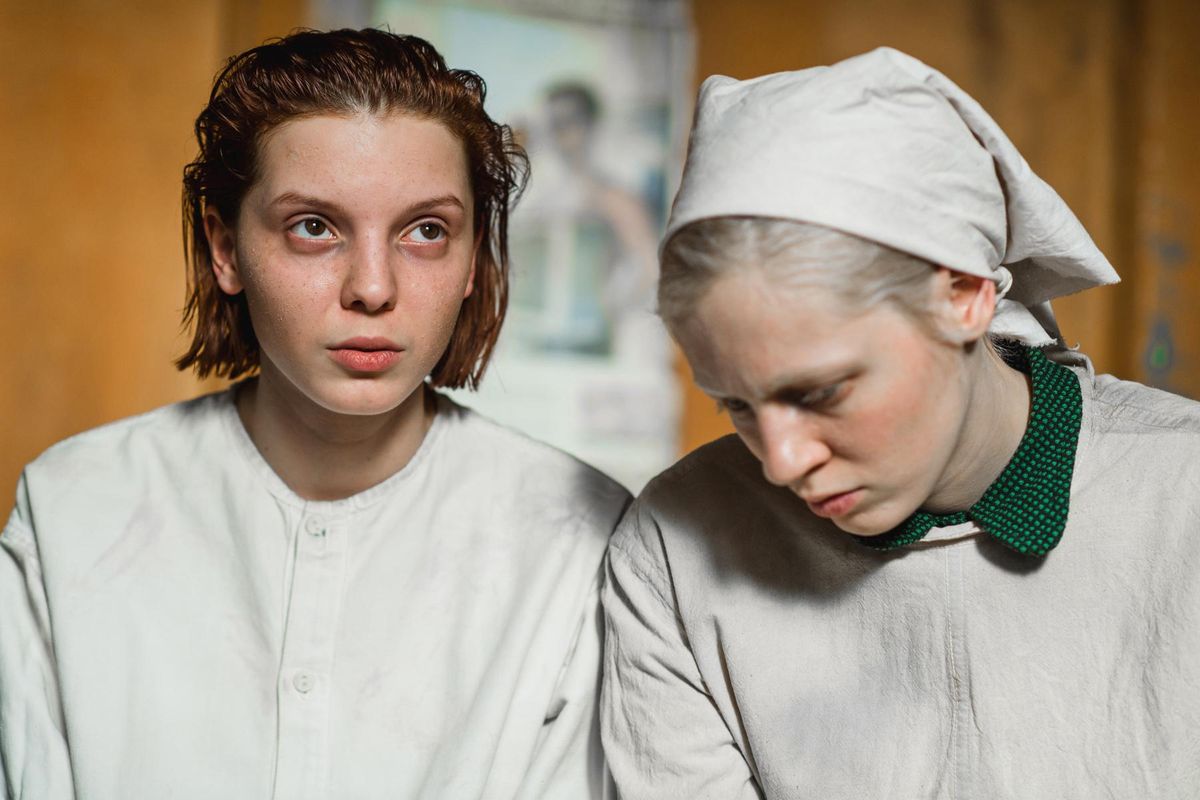Review: Oscar-shortlisted ‘Beanpole’ is a solid, if bleak, sophomore effort by Kantemir Balagov

It’s easy to see why “Beanpole” was celebrated at Cannes, where Russian director Kantemir Balagov took two prizes last year. The film, which also earned a spot on this year’s Oscar shortlist for best international feature, is a mostly empathetic tale of war’s cruelty as it affects those who fight and those who merely look on.
That empathy is conveyed through haunting performances, stunning direction and a sense of detail that elevates it beyond standard historical drama. It also is one of the bleakest films in recent memory, with an unflinching look at war’s trauma and the morbid bonds forged between those who bear it.
The events of “Beanpole” take place in 1945 Leningrad just after the brutal siege by the German army. This ravaged setting is introduced not with standard battle imagery or fanfare, but with a guttural sound issuing from the throat of a young Russian nurse nicknamed Beanpole for her towering and slender frame. Shown in mid-seizure – the result of post-concussion syndrome, her pallid figure seems frozen in space.
Discharged early from her post as an anti-aircraft fighter, Beanpole (first-time actress Viktoria Miroshnichenko) takes a job in an infirmary, where she is confronted by the injuries and disabilities of other returning soldiers. Every day, she must keep those suffering in good spirits while mentally battling her own demons and caring for the toddler son of her best friend Masha (Vasilisa Perelygina, another first-timer), who is still on the front line.
All this during a period of imposed rationing that imparts a pall over everything. “Beanpole” begins to take shape barely 20 minutes in after a horrifying incident that will be difficult to stomach for even the most steeled moviegoer. If you can grit through it, the film offers a rewarding – if also unnerving – look at survival in the face of tragedy.
When Masha returns home, the contrast with Beanpole is immediate. Where Beanpole is stoic and doll-like, her friend is more visibly scarred and agitated – nearly unhinged – by the conflicts raging around and within them.
In one scene, Masha and Beanpole are walking at night when a couple of drunken young men leer at them from a car. You brace yourself for the worst, but Balagov flips the scenario on its head: The two women rebuff the vulgar catcalling as Masha dominates the gawky driver, Sasha, into a sexual encounter, while Beanpole whales on his companion outside the car. Later in the film, Sasha becomes Masha’s desperate suitor.
At 28, Balagov has been hailed as a prodigious new voice in cinema, and there are clear signs why in this, his second feature after 2017’s “Closeness,” which also won an award at Cannes. He favors extreme close-ups and a palette of colors and textures that is, at times, exquisite; the hues of bodies and battered walls vibrate, nearly bursting from the screen.
But the film stumbles in the screenplay. Balagov – who co-wrote the script with Aleksandr Terekhov based on a 1985 oral history of Soviet women’s wartime experience by Nobel Prize-winning writer Svetlana Alexievich – too often uses trauma as a magnifying glass to show the surface, rather than the depths, of anguish. If “Beanpole” doesn’t quite attain the heights it reaches for, it is nevertheless a wrenching depiction of war’s effects, extending well beyond the battlefield.
“Beanpole” is opening virtually at the Magic Lantern. Find a link at magiclanternonmain.com.